
Sir Anthony Hope Hawkins, better known as Anthony Hope, was a British novelist and playwright. He was a prolific writer, especially of adventure novels but he is remembered predominantly for only two books: The Prisoner of Zenda (1894) and its sequel Rupert of Hentzau (1898). These works, "minor classics" of English literature, are set in the contemporaneous fictional country of Ruritania and spawned the genre known as Ruritanian romance, books set in fictional European locales similar to the novels. Zenda has inspired many adaptations, most notably the 1937 Hollywood movie of the same name and the 1952 version.
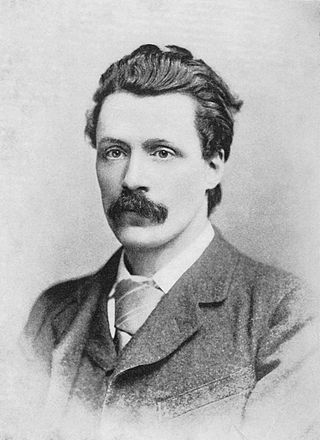
George Robert Gissing was an English novelist, who published 23 novels between 1880 and 1903. In the 1890s he was considered one of the three greatest novelists in England, and by the 1940s he had been recognised as a literary genius. Gissing's best-known works have reappeared in modern editions. They include The Nether World (1889), New Grub Street (1891) and The Odd Women (1893). He retains a small but devoted group of followers.
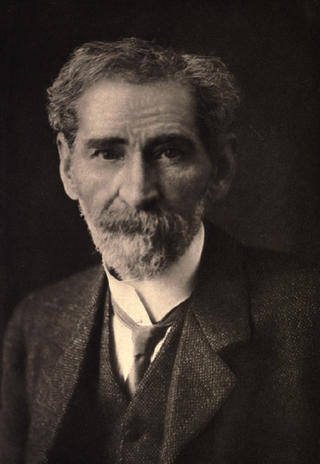
William Henry Hudson, known in Argentina as Guillermo Enrique Hudson, was an Anglo-Argentine author, naturalist and ornithologist.

Sir Walter Besant was an English novelist and historian. William Henry Besant was his brother, and another brother, Frank, was the husband of Annie Besant.
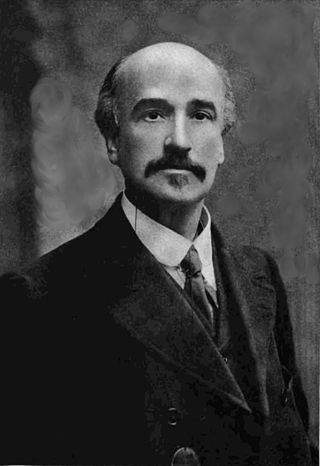
John Davidson was a Scottish poet, playwright and novelist, best known for his ballads. He also did translations from French. In 1909, financial difficulties, as well as physical and mental health problems, led to his suicide.

The Hand of Ethelberta: A Comedy in Chapters is a novel by Thomas Hardy, published in 1876. It was written, in serial form, for The Cornhill Magazine, which was edited by Leslie Stephen, a friend and mentor of Hardy's. Unlike the majority of Hardy's fiction, the novel is a comedy, with both humour and a happy ending for the major characters and no suicides or tragic deaths. The late nineteenth century novelist George Gissing, who knew Hardy, considered it "surely old Hardy's poorest book".
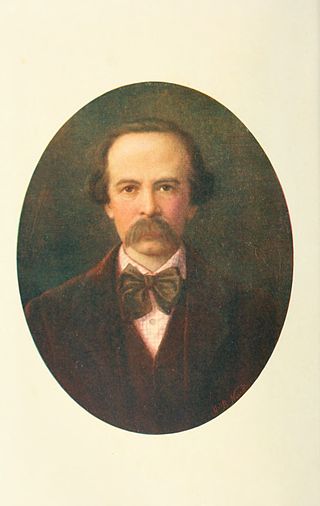
Theodore Watts-Dunton, from St Ives, Huntingdonshire, was an English poetry critic with major periodicals, and himself a poet. He is remembered particularly as the friend and minder of Algernon Charles Swinburne, whom he rescued from alcoholism and drug use and persuaded to continue writing.
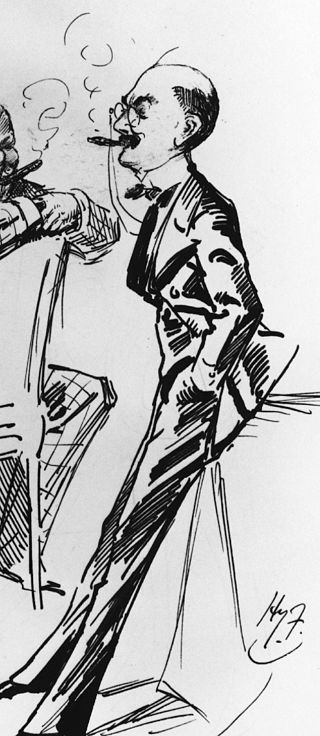
Thomas Anstey Guthrie was an English writer, most noted for his comic novel Vice Versa about a boarding-school boy and his father exchanging identities. His reputation was confirmed by The Tinted Venus and many humorous parodies in Punch magazine.

Archibald Gordon Macdonell was a Scottish writer, journalist and broadcaster, whose most famous work is the gently satirical novel England, Their England (1933).
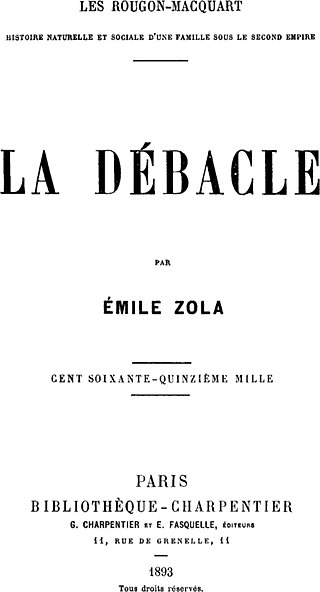
La Débâcle (1892), translated as The Debacle and The Downfall, is the penultimate novel of Émile Zola's Les Rougon-Macquart series, which first appeared as a serial in La Vie populaire from 21 February to 21 July 1892, before being published in book form by Charpentier.

The Gabinetto Scientifico Letterario G. P. Vieusseux, founded in 1819 by Giovan Pietro Vieusseux, a merchant and publisher from Geneva, is a library in Florence, Italy. It played a vital role in linking the culture of Italy with that of other European countries in the 19th century, and also became one of the chief reference points for the Risorgimento movement.

Ménie Muriel Dowie was a British writer.

Aunt Jane's Nieces in Society is a young adult novel written by L. Frank Baum, famous as the creator of the Land of Oz. First published in 1910, the book is the fifth volume in the Aunt Jane's Nieces series, which was the second-greatest success of Baum's literary career, after the Oz books themselves.
The Task: A Poem, in Six Books is a poem in blank verse by William Cowper published in 1785, usually seen as his supreme achievement. Its six books are called "The Sofa", "The Timepiece", "The Garden", "The Winter Evening", "The Winter Morning Walk" and "The Winter Walk at Noon". Beginning with a mock-Miltonic passage on the origins of the sofa, it develops into a discursive meditation on the blessings of nature, the retired life and religious faith, with attacks on slavery, blood sports, fashionable frivolity, lukewarm clergy and French despotism among other things.
Eve's Ransom is a novel by George Gissing, first published in 1895 as a serialisation in the Illustrated London News. It features the story of a mechanical draughtsman named Maurice Hilliard, who comes into some money, which enables him to live without working. As part of his resulting travels, he meets and falls in love with Eve Madeley, a book keeper.
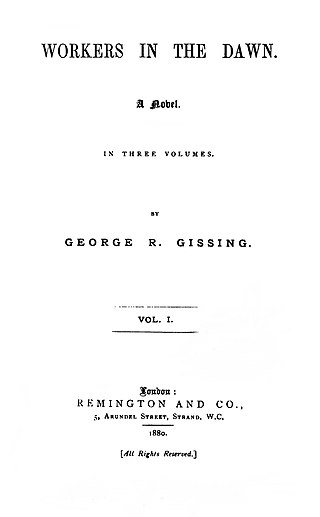
Workers in the Dawn is a novel by George Gissing, which was originally published in three volumes in 1880. It was the first of Gissing's published novels, although he had been working on another prior to this. The work focuses on the unhappy marriage of Arthur Golding, a rising artist from a poor background, and Carrie Mitchell, a prostitute. This plot was partly based on Gissing's negative experiences of marriage to his first wife. It also was designed to serve the function of political polemic, highlighting social issues that Gissing felt strongly about. Reviews of the novel generally recognised some potential in the author, but were critical of Workers in the Dawn. After reading the first known published review in the Athenaeum, Gissing was driven to describe critics as "unprincipled vagabonds".

Gerolamo Rovetta was an Italian writer and playwright.

David Christie Murray was an English journalist, who also wrote fiction.
The Gissing family of Great Britain included several noted writers, Olympic competitors, and teachers.
The Undying Past is an 1894 novel by the German writer Hermann Sudermann. Its German title is Es war which means "it was". The novel tells the story of how a German man, Leo, returns to his homeland after several years in South America, only to find that Ulrich, his beloved childhood friend, has married a woman with whom Leo has a dark past. The book was published in English in 1906, translated by Beatrice Marshall.
















